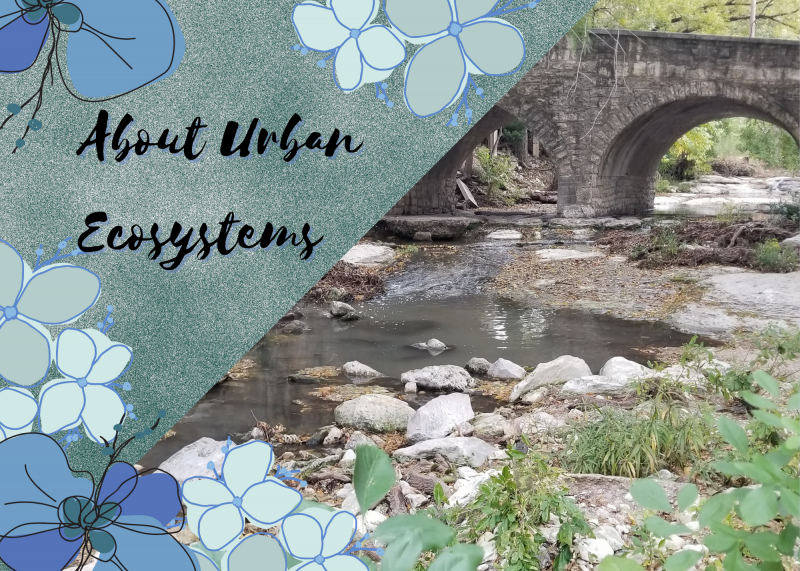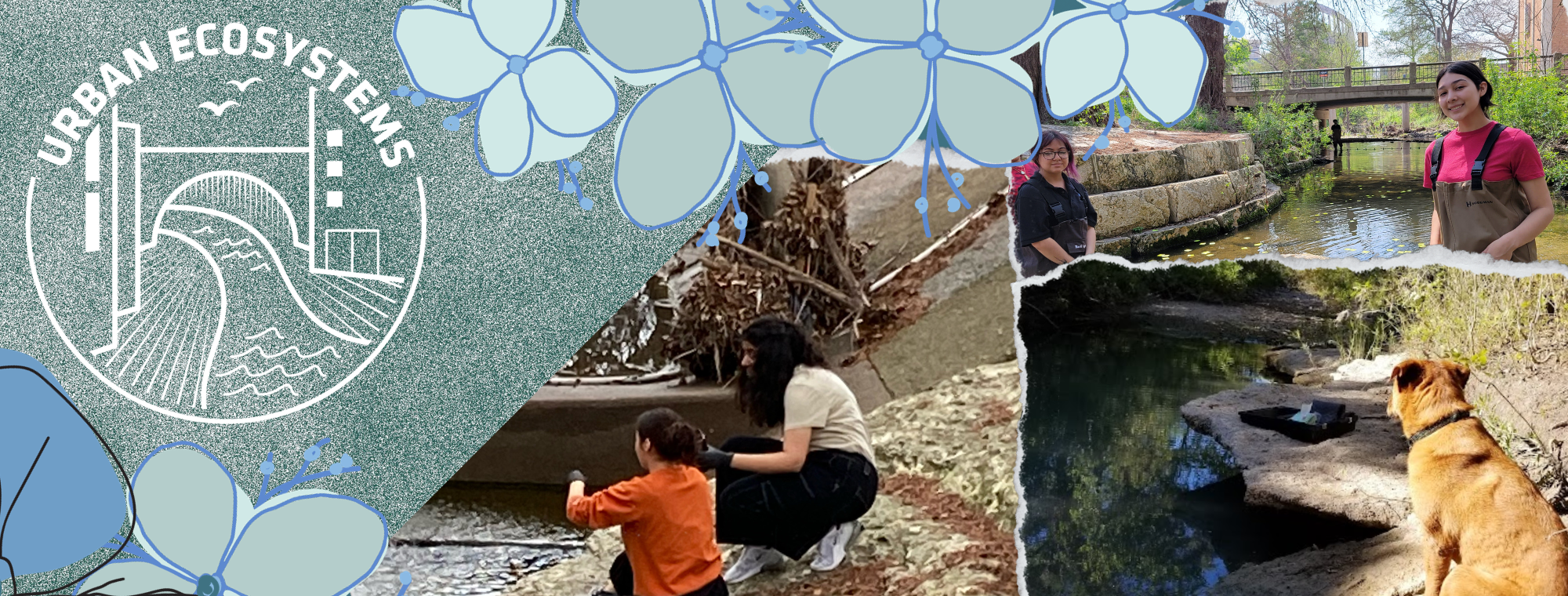
Understanding the function of urban ecosystems can help build more sustainable cities as well as to provide areas of beauty and relaxation for urban dwellers. In this multidisciplinary research stream, students use techniques from chemistry, biology, molecular biology, microbiology, ecology, environmental science, geological science, and social science to study urban ecosystems. We currently focus on the Waller creek watershed which includes most of the UT campus, and with more than 50% impervious cover, it is the most densely developed urban watershed in Austin. Leveraging the restoration work by the City of Austin and the Waller Creek Conservancy, this watershed provides an ideal testing ground to study urban ecosystem functioning and its response to restoration. Our current research includes identifying and quantifying contaminants in the creek, localizing contamination sources, and evaluating how stressors from urbanization and climate change affect ecosystem function. Our students engage in real-world research and problem solving with faculty, staff, and community stakeholders, like the City of Austin, the University of Texas, The Nature Conservancy, and the Waller Creek Conservancy.
“The Creek is an ever-visible manifestation of continuity, of life. . . it is the sum total of many processes, an intricately integrated process in itself. . . the fact that it has been interfered with by man, and continues to be interfered with, must be accepted as part of such total process, whatever opinion may be held as to the merits of the interferences.”
Joseph Jones, Life On Waller Creek (1982)

